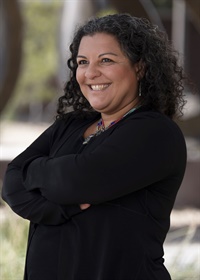If you have a special discount code for this program, please choose the Standard Price shown below. You'll be prompted to enter your member code once in the shopping cart.
Total Credits: 1 Standalone Webinar 1.0 CME
This presentation will explore the role of culture in the care of minoritized populations including migrant and Native peoples. We will differentiate between notions of cultural humility vs. competency, explore the importance of culture in biopsychosocial formulation, rapport building, and treatment planning, incorporating principles of integrative medicine and integrative psychiatry. Utilizing case examples, we will further apply cultural sensitivity and trauma-informed care within an integrative model of care.
At the conclusion of this activity, learners will be able to:
Drs. Yoblonski and Ranjbar have no relevant financial relationships to disclose. AzAAP gratefully acknowledges financial support for this ECHO series from the University of Arizona Department of Psychiatry.
| ECHO Session 11: Caring for Indigenous and Migrant Populations (355.1 KB) | Available after Purchase | ||

Dr. Yoblonski has worked at Phoenix Childrens Hospital in the Homeless Youth Outreach program and the Center for Resiliency and Wellbeing for the past eleven years. She currently works with homeless youth and families, foster children and youth, and survivors of sex trafficking. Trauma informed care is an area of interest due to the patients she works with. She has been working with the AzAAP Emotional and Behavioral Health Committee for the past two years.

Born and raised in Tehran, Iran until immigrating to the US in adolescence, Dr. Noshene Ranjbar developed a passion for a holistic view of medicine and healing from early on in her life. Throughout her studies and life experiences, including her own illness as well as caring for her Mom who suffered from several autoimmune illnesses and cancer, to fostering refugee children with PTSD, to working with American Indian communities across the U.S., she developed a keen interest in approaches to healing trauma and advocating for holistic mental health in empowering, culturally appropriate ways.
Dr. Ranjbar completed undergraduate and medical school at the University of Virginia, followed by Family Medicine Internship at Middlesex Hospital/Hartford Hospital, Psychiatry Residency at the University of Arizona-Tucson, and Child and Adolescent Psychiatry Fellowship at Boston Children’s Hospital/Harvard Medical School. Board Certified in General Psychiatry, Child & Adolescent Psychiatry, and Integrative Medicine, Dr. Ranjbar currently serves as Associate Professor of Psychiatry and Director of the Integrative Psychiatry Program at the University of Arizona. She also serves on Faculty with The Center for Mind-Body Medicine, the Andrew Weil Center for Integrative Medicine, and the Integrative Psychiatry Institute.
Her research focuses on training the next generation of psychiatrists to offer a holistic approach to mental health, while serving children and families most in need. As a Robert Wood Johnson Culture of Health Leader, she is expanding her work in integrative mental health and indigenous mental health nationally and internationally.